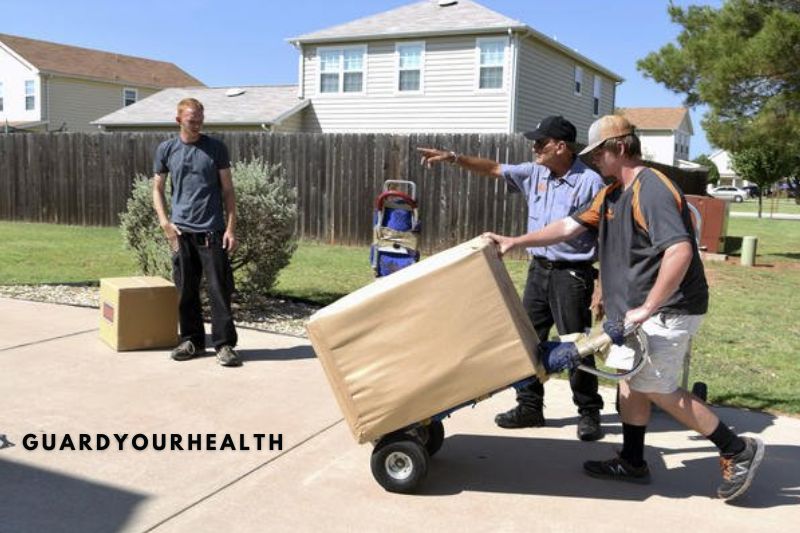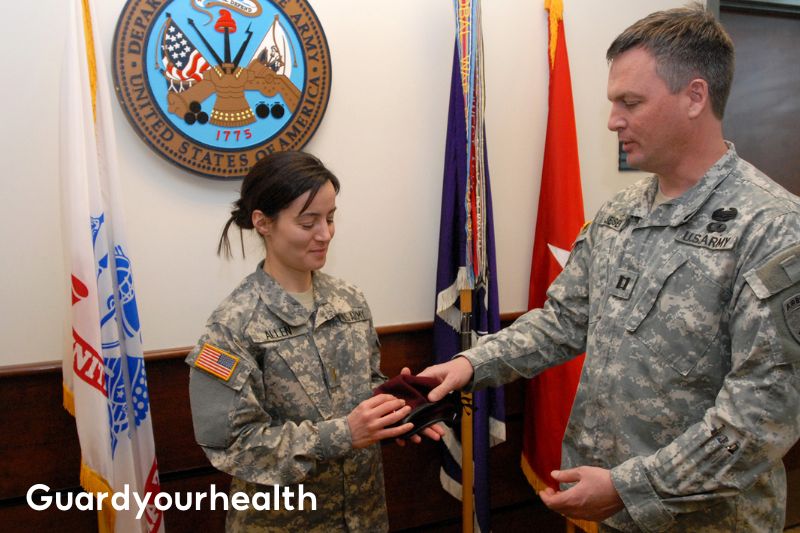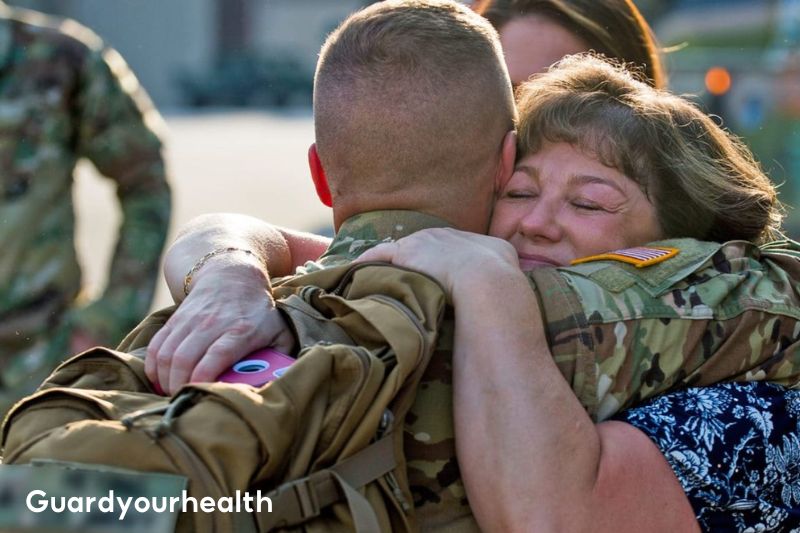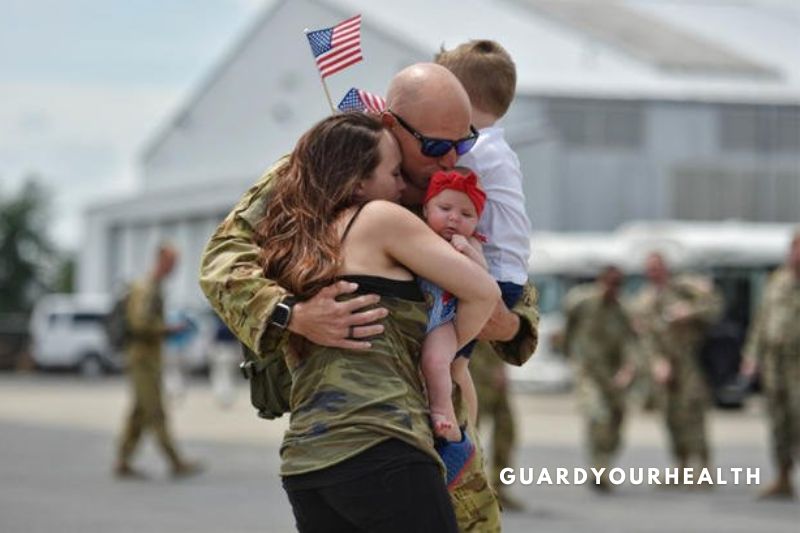Military families move around quite a bit. They may be stationed at different bases around the country or even around the world. So, how often do military families move? They must be prepared to pack up and move at a moment’s notice. This can be tough on families, but it is just a part of their life.
How Often Does A Military Family Move
As previously stated, a military family often moves every two to three years. It might be more or less based on the individual role of the service member. PCS is the military term for “moving” (Permanent Change of Station). A member may be transferred to another nation region (CONUS) or abroad (OCONUS). Moving is difficult for any family, regardless of where they are transferred.
A Few Difficulties of Moving as a Military Family
1. You will need to pack and move over and over
Many tasks will have to be done repeatedly, such as packing, which is emotionally and physically taxing. Furthermore, it might be costly.
Fortunately, there are a few solutions to consider in this respect. You have the option of doing a personally procured move (PPM), a partial PPM, or home goods shipping.
An individually procured move is where you handle all the packing and moving and get payment from the military. It is also known as a DITY (Do It Yourself) maneuver. However, the method may be difficult, and not all costs are considered.
A partially procured move is precisely what its name implies. You transfer part of your belongings and leave the rest to military movers.
A home goods shipment is when you delegate all responsibility for packing and moving to the military and utilize military-hired personnel.
In terms of money, it is suggested that you put aside a PCS savings fund. It’s a good idea to have this on hand at all times. To make this process easier, seek out PCS savings strategies and trackers online.
2. You will need to get a new job again and again
Another major concern with regular PCS is having to re-apply for jobs. This is not only time-consuming but also dangerous. You may not be able to commit to the business you want entirely, and you could miss out on promotions.
Fortunately, several tools are accessible to assist you in your job search or job hunt. For your convenience, below is a list of directory links for each military branch:
- The military
- The Naval Service
- The United States Air Force
- The United States Marine Corps
- The United States Coast Guard
How often do air force officers move? You may also investigate preferred employment schemes. The nine careers advised for military spouses are ABA therapist, graphic designer, nurse, computer support expert, pharmacist, programmer, social worker, marriage or family therapist, and teacher or assistant.
3. Your children will need to change schools frequently
This is akin to your children starting a new school. They will constantly be the “new child,” making it difficult to enjoy school. Making friends and fitting in may be challenging. As a result, you must make time to assist your children in adjusting whenever the family moves.
Depending on where you are going, further challenges may include learning a new language or adopting a new lifestyle. This is, of course, easier said than done. If you are relocating to a new nation, adjusting to the changes will undoubtedly take some time. Don’t be in a hurry! Prepare to put in the time and work into this procedure.
4. You will need to embrace change
There are a few additional things to consider and plan for if you are migrating outside of the United States:
Paperwork: There will be a lot of paperwork. Check that all formal orders are appropriately filled out. Check twice and three times! You will also most likely need a visa and medical clearance.
Communicate with your international sponsor. They have the necessary information, so do not hesitate to speak with them. They have access to all of the insider information and basics.
Connect: It’s difficult to be the “new kid.” To make things easier, you’ll need to CONNECT. Attend the processing briefings and newcomer meetings.
You will get vital information and meet individuals who go out of their way to help, such as family, installation-support services, and school liaison officers. Make certain that you do not isolate yourself or your family.
Most essential, concentrate on the positive. Think positively and optimistically. Moving to a new nation has several advantages. You may visit other areas and sample new cuisines.
Consider it a chance to appreciate diversity. You will eventually fall in love with everything around you!
5 Things You Need to Know About Military Families
1. They’re Like You
Surprise! Military families are not dissimilar to civilian ones. Many perceptions of military families are inaccurate, such as rigid homes, significant unemployment, and a lack of identity outside the service.
Military families are made up of caring, fun-loving, committed men, spouses, children, and pets, similar to civilian families – they work around a vocation that requires a different lifestyle. Military families are no different from their neighbors regarding what matters most when starting a family. Furthermore, not all military spouses are female.
2. Deployments are Difficult
Military spouses may seem to have their life together and are managing deployment like champs, and the reality is, they most often are. Deployments, on the other hand, are very difficult on military members, their families, and their children. A service member’s deployment is “routine” for military families but does not make it any easier.
Deployments take military spouses away from their husbands or wife, who may be in an unknown or dangerous place. Deployments involve months away from a parent or other authoritative figure for military children.
It means adapting to a new normal of single-parenting, missed baby births, countdown calendars, and an empty place at the dinner table for the whole military family. Even after the military person returns, it may take some adjusting and time to settle back in.
Deployment is a difficult time for both the service member and their family, which is why having a helping hand or even just a patient listening ear from military and civilian friends can make all the difference during that period of separation for military spouses and their children.
3. They’re Always the New Kid
Moving often is an unavoidable feature of military life. Most military families relocate every two to three years, with others moving even more often. It’s not uncommon for a military kid to have relocated 10 times by the age of 12 and to have changed schools 6 to 9 times between kindergarten and high school graduation.
Although the military community (and the USO) have programs in place to assist military families when they move, it can still be disorienting and difficult to move so frequently, both for the military spouse who is making sure all the boxes are packed and for the military children who must say goodbye to close friends.
Being a military family member means always starting over and being the new kid on the block. Military families recognize that postal addresses are never permanent and must be prepared to relocate anywhere around the globe.
Although it is difficult, relocating often means that military spouses and children live all over the nation and the globe. They can adjust to new conditions and are frequently good at establishing new acquaintances.
4. LinkedIn for Beginners
Because military spouses move so often, it may be difficult to maintain a steady professional path. Most spouses have to change professions every 2 to 3 years, leaving little chance for professional progress or establishment in a firm. Some employers are hesitant to hire military spouses because they know they will ultimately leave.
Because a job on the road is not for everyone, many spouses have few work choices. However, many businesses have established business models centered on recruiting military spouses to serve the military community, and the USO has created its own USO Military Spouse Networking Program.
The USO invites up to 50 military spouses and area hiring companies, community leaders, and organizations interested in recruiting or assisting military spouses to its Military Spouse Networking events.
These gatherings provide spouses with personalized business cards, a prepared professional elevator pitch, and several new contacts in the local community.
The USO also provides programs such as USO Pathfinder, which provides counsel and assistance to service personnel and their spouses as they transition from the military to civilian life.
5. Balancing Act
Being a member of a military family is a constant balancing act. Sometimes “the work” must come first, while other times, family comes first. But, in the end, when a service person enters the military, their family also joins.
Service members, military spouses, and military children all realize that this life is full of unique obstacles and frightening times, but working together as a family allows the service member to fulfill their duty to protect their country and its people.
Effects of Moving on Military Families
Military families face a lot of stress as a result of frequent relocation. They are uprooted from their villages every few years and must leave their friends behind. Children must acclimate to a new educational environment.
Spouses must abandon their employment and may be prevented from furthering their professions; others may opt to forgo a career completely owing to the difficulties of repeated work changes and finding new childcare each time their family relocates.
Although the Department of Defense subsidizes the migrations, some charges aren’t covered, such as pet transportation fees, food and cleaning supply pantries, and clothes for unfamiliar climes, which may rapidly mount up.
Strengthening Our Military Families
The Armed Services YMCA (ASYMCA) can help with this. The ASYMCA aspires to give the support, enrichment, recognition, security, independence, and opportunities required to build the military family relationship and lessen the stress our nation’s heroes experience, allowing them to better concentrate on their service goals.
Military life poses particular problems for the family unit as a whole and for each member. The AYMCA offers services and activities to assist junior-enlisted service members, their wives, and their children in navigating military life in the face of frequent moves and deployments.
The ASYMCA works hard to empower our military families holistically by identifying and correcting gaps in services that represent a hardship to service members and their families—hardships that may adversely influence mission readiness.
Why Do Military Families Move So Often
The military rotates its personnel on a regular basis because different bases require a particular number of people for operations, missions, and specialized training. Relocation provides an opportunity for military members to grow in their careers and diversify their experiences.
This “movement” is not universally praised. Apart from military families, many people oppose the practice of relocating military troops every two to three years. The most common argument given is expense, which is borne by taxpayers.
FAQs
Does the military move a lot?
The military often transfers its personnel, uprooting many of them to new positions every two to three years and occasionally more frequently. Military families that relocate with enlisted personnel face additional obstacles due to the continuous reshuffling.
How long are you away from family in the Army?
How often do you move in the army? The usual military deployment lasts between six and twelve months. However, deployment times vary widely from branch to branch, are situational, and are determined by various criteria unique to each military member.
Can your wife deploy with you?
Unfortunately, visiting your spouse while deployed is quite rare. There’s a reason why do military families move so much! Even if you were adaptable enough to board an aircraft anytime, your spouse said, “Go,” you would still be paying exorbitant airfare.
What happens if you get a pregnant girl while in the military?
Military Pregnancy Regulations
A woman who falls pregnant after enlisting but before beginning her first active service in the Army will not be dismissed involuntarily due to pregnancy. She won’t be able to return to active service until her pregnancy is done (either through birth or termination).
Conclusion
Overall, military families move an average of every two to three years. However, this number can vary depending on the specific branch of the military and the family’s situation. For example, families with young children may move more often than older ones.
Families stationed in remote locations or with other unique circumstances may move less frequently. Thank you for reading, and we hope this information is helpful.












